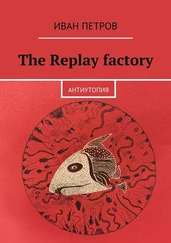Ikey paused, for he could see the beginning of contrite tears in his listener's eyes.
'When a convict dies from an act o' violence, such as a floggin' with the cat o' nine, or a beatin' by an officer or by means of a hangin' or starvation or from a charge o' shot while attemptin' to escape, then a blue dove dies with 'im, dies of a broken 'eart.'
By this time Smiles, seated on his haunches on the deck in front of Ikey, was sobbing unashamedly.
'There is told of a tree at this vile place,' Ikey continued soulfully, milking the moment to its extreme, 'an old tree without leaf, its bark peeled and its branches pure silver, where at sunrise the blue doves come in such numerosity that they become the very leaves o' the tree. The tree becomes a shinin' blue thing in the antipodean sunlight. But, if you should observe with careful eyes, you will see no two doves are perched with 'eads together. No dove is partner to another, for each o' these doves is the partner of a blue dove who 'as died when a convict 'as violently perished.'
Ikey lowered his voice to a whisper. 'It is said that the blue doves that sit upon that great silver tree are too numerous for any man to count!'
Much taken with this story, Jeremiah Smiles had faithfully rendered onto Ikey's upper arm the circle of roses and within it the two blue doves, whereupon he had inscribed above the heart the words: To my one and only blue dove.
Now, nearly twenty years later, on his way to Birmingham, the thought crossed Ikey's mind that Mary was his one and only blue dove and he grew suddenly greatly sentimental at this thought.
Ikey told himself he would take good care of his little blue dove, and that no violence would come to her, as she would not lack the means to bribe and pay her way. Should she be arrested, convicted in due course and, as was most likely, transported to New South Wales, he would pay for her continued good treatment in prison and upon her eventual transportation she would lack for nothing.
It was at this point in his rumination that an idea of startling magnitude came to him, one so bold that it caused his head to pop completely up and out of his great coat to see whether the nature of things had changed so entirely that he was not, as he supposed, on the coach to Birmingham, but on some celestial flight of fancy – a voyage of the imagination which had taken himself out of himself and transformed him into another creature of an altogether different nature and disposition.
But all he could see upon his tortoise-like emergence was a line of stringy winter willows tracing the path of a stream, the familiar dotting of black-faced sheep upon the rise, and a solitary crow high on a winter-stripped branch of a sycamore tree. Upon the road, wrapped in rags and skins, their breath clouding in the cold, trudged the usual conglomeration of feckless wanderers, gypsies, tinkers, navvies, moochers, beggars and tradesfolk.
Moreover, the people within the coach seemed the same as those with whom he had embarked at White-chapel markets. There was a fat woman in mourning, her poke-bonnet festooned in black dobbin and upon her lap a very large wicker basket. Beside her sat two gentlemen from the city, Tweedledum and Tweedledee, square-rigged in black with coloured waistcoats, their top hats pulled over their eyes, bearded chins upon their breasts asleep.
On the same side as Ikey, but at the opposite window, occupying fully the space for two passengers, sat an enormously stout red-bearded countryman. He wore a rough tweed jacket and breeches, and a pair of enormous countryman's boots. The colour of his clothes was matched by his wildly gingered chin, upon which the stem of a curved pipe was gently cushioned, the tobacco of his choice being particularly acrid and rank smelling.
At the ginger man's feet lay a large hound with one eye missing, its head upon its paws, its single cyclops eye fixed balefully upon its master, who being a jolly fellow had purchased a ticket for the dog which entitled it to human passage, but then, in a gesture of goodwill, had invited the other passengers to place their feet upon its large, furry carcass. This the woman and two city gentlemen had promptly done as there was no possible alternative, the great lolling dog having filled most of the floor space available.
On a warm summer's day the foul pipe and the presence of the large panting creature who undoubtedly carried a host of fleas upon its back would have proved most onerous for a person delicate of stomach, but on this bitterly cold December afternoon it made for a certain snugness, even an unspoken friendly fugginess within the coach.
Ikey was now much alarmed, for he was sure some mental aberration had struck his febrile brain, and now the banal scene about him seemed to contradict this very supposition.
There had risen up in Ikey's fevered mind the idea that he would reform, take on the mantle of respectability and the strictures of moral rectitude, forsake his born ways and take ship to Australia where he would establish himself as a gentleman and tend to Mary's needs until she received her ticket of leave and was able to join him. Her head and his touching, blue doves together again.
It may cause surprise that Ikey could think in such a mawkish manner, but even in the foulest heart there lies a benign seed of softness. It may long lie dormant, but if given the slightest chance will swell to fecundity and surprise all who have previously known its owner. Was this not the very point made by the Salvationists who despair for no man and follow their hopes for redemption to the gates of Tyburn and to the knotted cord and final trapdoor itself?
It must also be remembered that Ikey's potential metamorphosis did not include his wife Hannah or his children. The milk of human kindness had not entirely washed away the stains of his known and expected character and he felt no compunction about deserting his wife and children providing he could contrive to take his money with him. This Ikey knew to be an unlikely circumstance as he was made to account to Hannah for almost all the transactions which passed through his hands. Besides, she held the second half of the combination safe under the pantry floor.
Ikey's obsession with bookkeeping was his downfall. He had trained Hannah to keep books on her five brothels and these he inspected every evening before leaving home, entering the profits in a ledger of his own. Hannah, who pretended to the outside world that she was illiterate, demanded the right to see Ikey's ledgers, which she understood to a degree which often frustrated him.
Ikey could not bear for anyone to know his business and the ledgers Mary kept so diligently for him consisted only of the merchandise coming in, a stocktaking list and first evaluation of stolen and fenced articles, not a final accounting. So she never entirely knew the state of his affairs.
Ikey's ledgers were of the final reckoning of profits cross-referenced in astonishing detail; the what, why, when and where of every stolen article, so that no two articles from the same source would appear for sale in the same market. These great books were an extension of his mind, a beautiful reckoning of the results of his every business endeavour. Each ledger was a tangible proof that he existed, the strong vellum pages, the stoutly bound cover of softest calf leather with his name embossed in gold upon it, the squareness of the corners and the beautiful marbled endpapers. These all spoke of strength, respectability and an ordered and handsome masculinity.
Ikey's ledgers were everything he couldn't be and when he wrote within them in his neat copperplate hand, each entry adding to the sum of his wealth, in his mind the ledger became himself, brave, strong, valuable, clean, permanent, respectable and accepted. Ikey's ledger was an addiction as necessary to him as an opium pipe is to the captain of a China clipper.
Читать дальше












